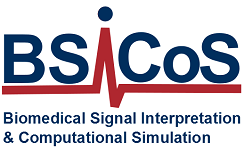-
Proyectos
Translational cardioselective RNAi therapies and predictive heart-on-chip to tackle cardiac clinical challenges (ADVANCE) – PID2022-139859OB-I00
Fecha de inicio
2023
Fecha de finalización
2026
Coordinador
Laura Ordovas (BSICoS) / Jesús Ciriza (TME LAB)
Funding agency
Agencia Estatal de Investigación
Cancer and cardiovascular disease (CVD) are the leading causes of death in occidental countries. According to the European Heart Network (EHN), cancer is responsible for nearly 25 % of the deaths in Europe and CVD for another 40% (nearly half of which are due to ischemic heart disease). On the one hand, adverse side effects of cancer therapies often cause life-threatening cardiotoxicity in cancer survivors, and thus chemotherapy-induced cardiotoxicity (CIC) limits their full therapeutic capacity. On the other hand, the lack of regenerative capacity of the heart and the associated adverse myocardial remodelling present after infarction lead to heart failure (HF). To date, there is no effective prevention of CIC or regenerative therapy for the ischemic heart. This is largely due to the lack of translational models of these conditions in which to develop and test novel therapies.
The main objective of ADVANCE is to generate predictive preclinical human Heart-on-Chip (HoC platforms for CIC and HF onset that incorporate a functional endothelial barrier to enable the development of advanced therapies, namely cardioselective RNAi therapies delivered by non-viral methods. Nanovector (NV)-based active targeting of RNAi to the cardiac cells is expected to increase RNAi efficacy (improving on-target dosing) and safety (reducing off-targeting), thereby unlocking its full therapeutic potential.
Both concepts, HoC and RNAi-based nanotherapies, work in synergy in ADVANCE to provide a major step forward in the development of novel models and treatments for cardiovascular medical challenges with unmet needs.
